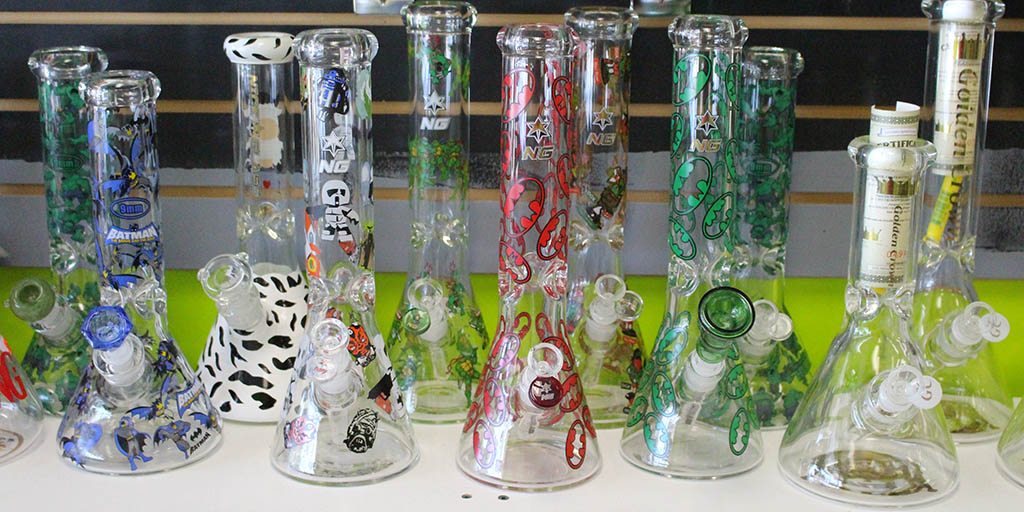Some of the cons to legalizing cannabis
 CREDIT: LAUREN DIETRICH
CREDIT: LAUREN DIETRICHWith the possibility of marijuana being legal come July 1, 2018, not everyone agrees with having this drug become more acceptable to use.
There may seem to be a lot of pros to having marijuana legalized such as increasing income revenue for the economy or pushing back the sales of black market weed. However, are these enough to outweigh the cons?
In my opinion they are not.
Here are some subjects where a negative impact from legalizing cannabis seems more likely than a positive change.
Impaired driving
This has probably been one of the bigger debates in the fight for legalizing marijuana. How can you tell you are too impaired to drive?
The law is issuing a fine to those who would drive while impaired by marijuana, but it is similar to the same problem with drunk driving.
People are still going to do it.
With alcohol it is easier to tell when someone is drunk, they can’t walk straight or have the smell on their breath. For those using drugs though, it is harder to tell.
Not all police officers are trained to detect drug use, which is leading to the issue of there even being enough funds to cover training more cops in the way to tell.
According to a May 15 Globe and Mail article titled Federal funds may not cover marijuana-legalization costs, Ontario police say, by Nicole Thompson, currently there are 743 Drug Recognition Experts in Canada. Increase in the use of marijuana incidents will have to increase the need of recognition training and equipment for saliva testing, and thus more money needs to be poured into law enforcement.
Is the revenue enough to cover the cost?
Maybe, but maybe not.
About $40 million is being allocated to municipalities and this money has to spread evenly across education, law enforcement and other areas. As mentioned above, police are already funds may not be enough.
Looking at the Ontario Cannabis Retail Corporation, who will be selling the pot, they are expecting to loose about $48 million before making income and that won’t be expected until 2019 – 2020.
Question is, will the gain outweigh the cost, before the cost crushes our funds?
Help stop black market crime?
One of Prime Minister Justin Trudeau’s most important claims for legalizing weed is that it will help curb the black market for the drug.
Sure with legalizing marijuana there is going to be a better guarantee of drugs not being tampered with and I can give credit to keeping the limit to a tiny bit, but is this going to curb black market dealings?
There might not be much of a dent.
Think about it. All the black market dealers have to do is sell less then the government with more quantity to still get a cash flow.
“But what about the fines? Won’t that give people more incentive to follow the law?”
Has committing the crime of even possessing marijuana stopped anyone before?
In that case why not just keep it illegal? That way the black market has no price point to keep their customers wanting to buy from them rather than the government.
Health effects, especially on youth
One of the most problematic regulations I have been finding with this topic is the age limit they are setting to use marijuana, which is 19.
This is the same age as drinking and smoking and wouldn’t be quite so outrageous only if there wasn’t one glaring factor the government is choosing to ignore.
If you check out Ontario’s regulations on the legalization of cannabis there is a link that brings you to the Government of Canada’s listing of health concerns towards using marijuana. It clearly states that youth under 25 who use cannabis have the chance to affect brain growth negatively.
Twenty-five years old compared to 19? That’s seven years. For years someone could be damaging their mentality because the government is choosing to ignore this medical fact.
And those who try it once, are more likely to try it more times as addiction to this drug is high. The Government of Canada estimates that one in 11 people who use it once in their lifetime will become addicted to it, which increases with those who start in their adolescence.
The harms on oneself through use are both long-term and short-term, which include hallucinations, confusion, anxiety, damage to lungs, depression, negatively memory retention and of course is addictive.
The final question…
Does everyone even agree it’s a good idea to legalize?
This seems pretty split only a month before it is supposed to be available to buy.
Some are encouraging Trudeau to postpone the date to allow more groups like the Indigenous communities and law enforcement better prepare themselves for tackling the new laws and getting people ready for the change, which no one quite seems ready for.
Editorial opinions or comments expressed in this online edition of Interrobang newspaper reflect the views of the writer and are not those of the Interrobang or the Fanshawe Student Union. The Interrobang is published weekly by the Fanshawe Student Union at 1001 Fanshawe College Blvd., P.O. Box 7005, London, Ontario, N5Y 5R6 and distributed through the Fanshawe College community. Letters to the editor are welcome. All letters are subject to editing and should be emailed. All letters must be accompanied by contact information. Letters can also be submitted online by clicking here.














